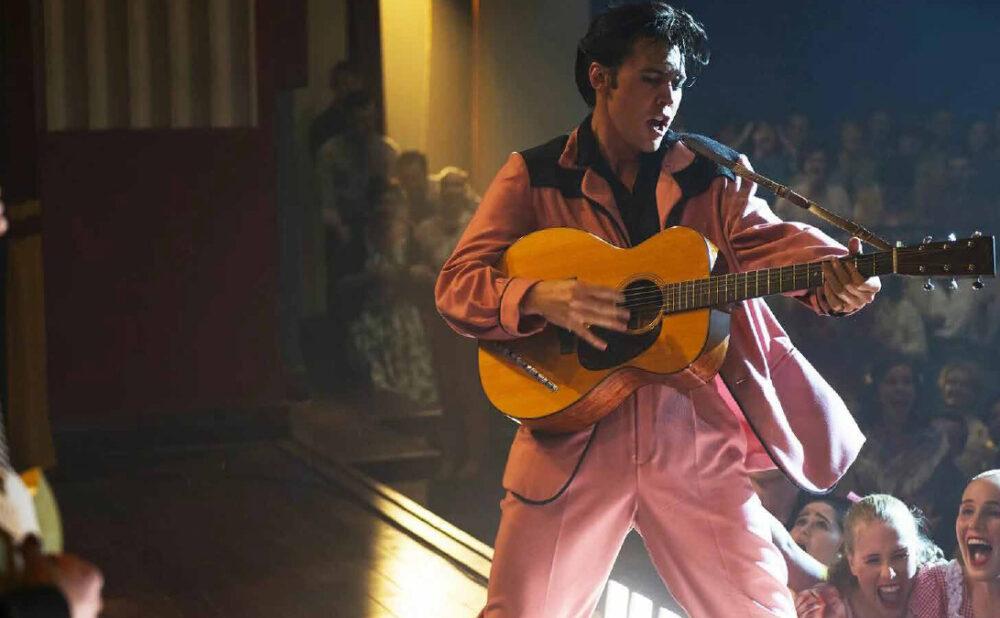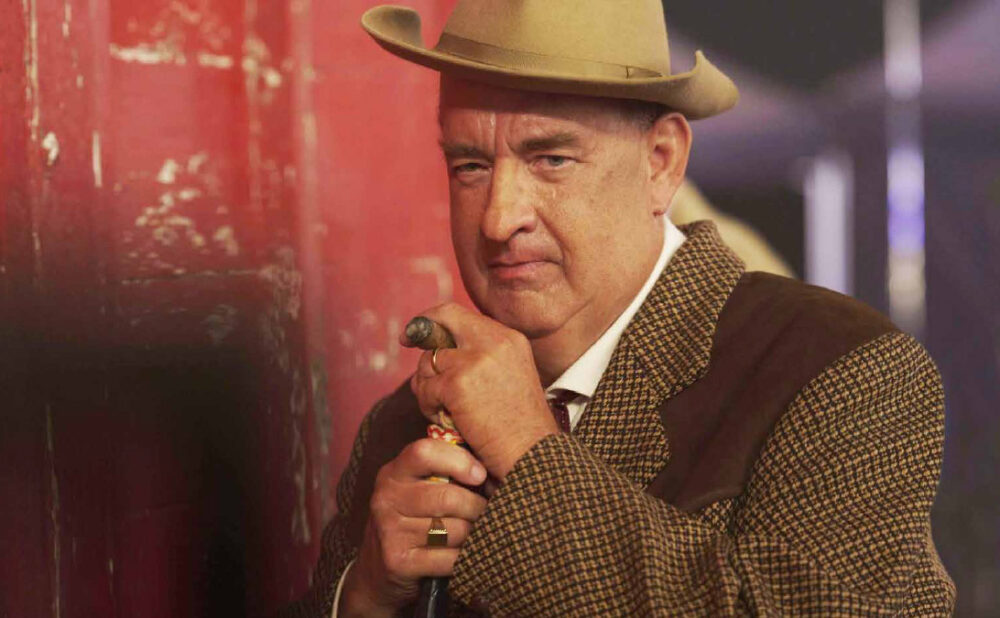Lavish Luhrmann Elvis biopic more than just pretty pictures
Gorgeous ‘Elvis’ a celebration of rock and roll.
Elvis
Where: In theatres
What: Movie, 169 mins.
When: June 24
Genre: Biopic
Why you should watch: Extravagant director Baz Luhrmann sinks his shimmering teeth into a story he was born to tell: the tale of The King of Rock ’n’ Roll, Elvis Presley. A strong narrative propels Luhrmann’s magnificent visuals in a film that tells Presley’s personal story as well as celebrating rock and roll while exploring cultural appropriation, censorship, celebrity and more. Leads Austin Butler as Elvis and Tom Hanks as manager Col. Tom Parker are excellent.
Elvis is the film extravagant director Baz Luhrmann was born to make with the larger-than-life story of the most famous American ever proving the perfect subject for Luhrmann’s ambitious and grand vision.
The story of Elvis Presley is big enough for a director who uses every inch of the big screen for his visually magnificent films. Known for his gorgeous work with films like The Great Gatsby, Moulin Rouge and Romeo + Juliette, Luhrmann’s work on Elvis is at least matched. The flamboyant performer and the Las Vegas setting of much of this film provide plenty of glitter and shine for the dazzling director.
In one of the film’s early scenes, Luhrmann creates a visual depiction of what rock and roll feels like — from the audience’s and the artist’s perspectives. The scene is an orgasmic onslaught that leaves the viewer breathless and wanting more. While Elvis is fundamentally a celebration of rock and roll, it’s also an intelligent exploration of race in America, censorship and celebrity as it tells the life story of Elvis Presley. The narrative in Elvis is strong and much clearer than in some Luhrmann films. Dazzling visuals propel a compelling tale of a white, poverty-stricken Southern boy who becomes one of the most famous people in history for bringing rock and roll to the masses after being influenced by, and re-purposing, “coloured music.”
Elvis doesn’t shy away from exploring issues of cultural appropriation, and the founders of R&B — including B.B. King, Big Mama Thornton Sister Rosetta Tharpe and Little Richard — are all well-represented in the film. The racism at the core of the anti-rock and roll, anti-youth forces of the anti-Elvis “adults” is on full display.
The film is loosely told from the perspective of Elvis’s Svengali mastermind, manager Col. Tom Parker, well-played by Tom Hanks in a fat suit, as he poorly tries to make the case that he did not ruin Elvis’s life and mismanage his career. Hanks effectively transforms himself into the hefty, scurrilous manager with a befuddling accent, the kind of makeover Oscar voters love come awards season.
Relative newcomer Austin Butler perfectly plays Elvis, combining awe-shucks, small-town humility and innocence with a champion’s clarity of vision and commitment to his career and craft. Butler manages the transition from rough and raw, rock and roll Elvis to his physical decline without ever becoming just a caricature. While Elvis is fundamentally larger than life, Butler manages to still tell a personal story and we get a sense of Elvis the man, not just the symbol.
Luhrmann wisely turned down Ed Sheeran, who was desperate for the role of Elvis, leaving Butler the space to keep Elvis as the centre of the story. Butler sings all of Elvis’s songs in the rock days, his voice blended with the real Elvis’s vocals for the Vegas years. As in previous Luhrmann films, the soundtrack is magnificent and inventive. Signature Elvis tunes are given modern updates by contemporary artists, including Doja Cat, Eminem and Diplo, in addition to vintage recordings from The King and his contemporaries.
Elvis is possibly Luhrmann’s best film yet — the director’s grand cinematic vision is up to the task of telling the larger-than-life tale of one of the most famous humans ever.
Michael Hollett speaks wth Elvis director Baz Luhrmann in July print issue of NEXT.






